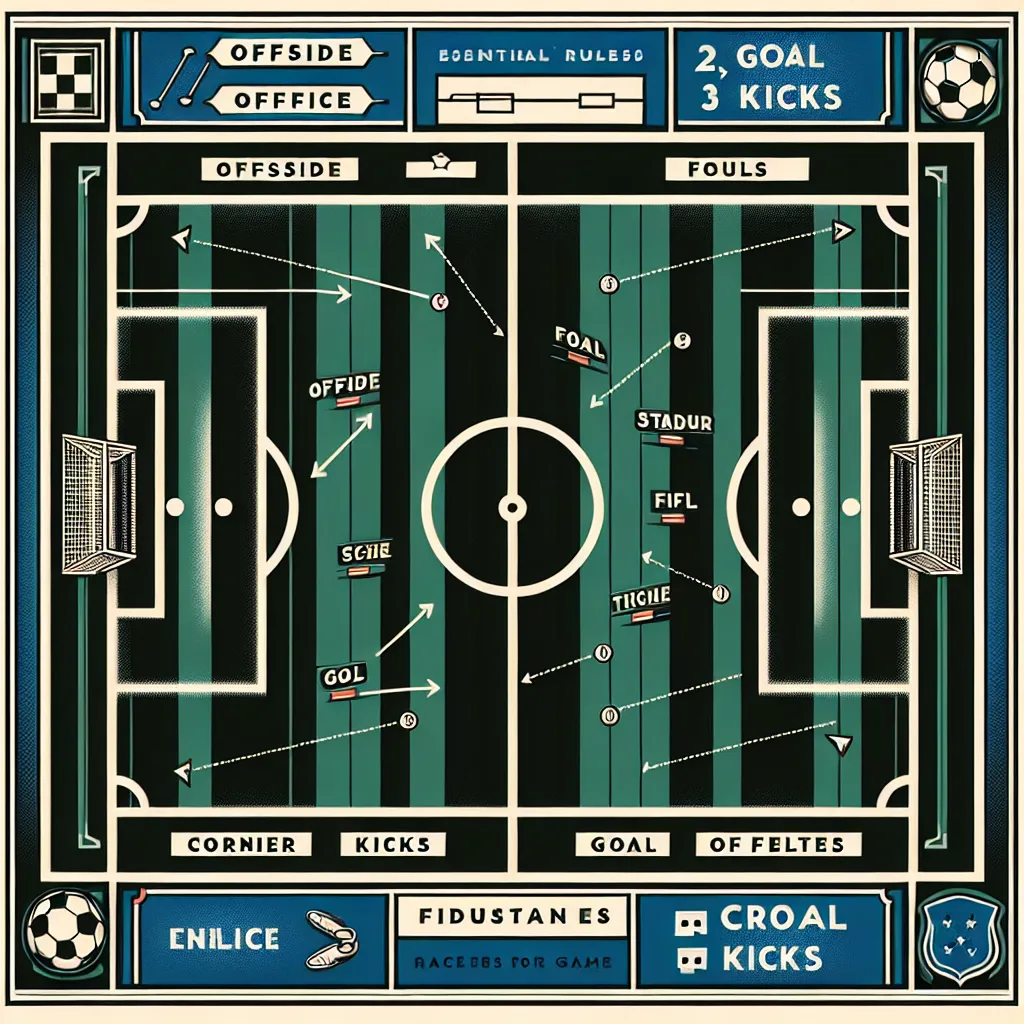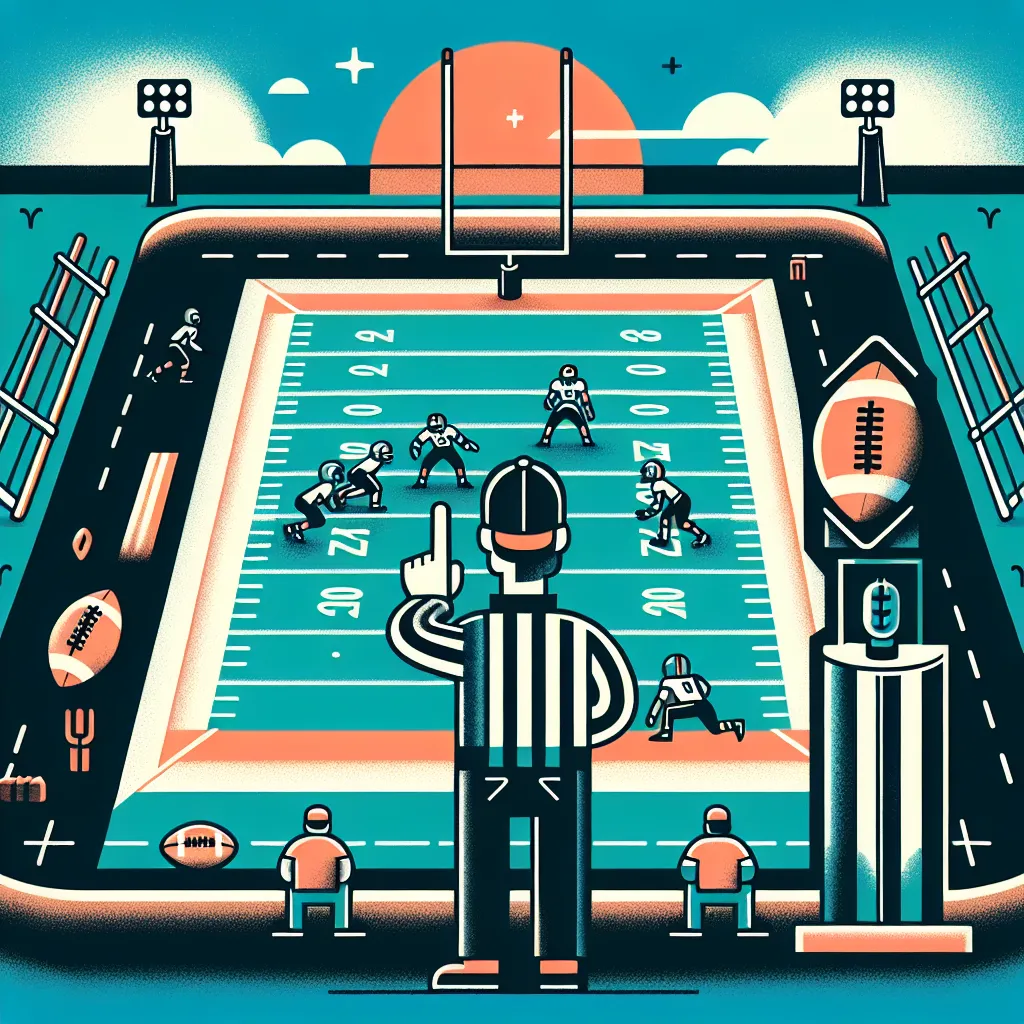Ask AI on The Internet
Question: write a essay Explain five important rules of football
### The Fundamental Rules of Football Football, also known as soccer in some parts of the world, is renowned for its simplicity and universal appeal. It is governed by a comprehensive set of rules known as the Laws of the Game, which ensure fair play and the smooth functioning of matches. While there are numerous rules, five stand out due to their fundamental importance to the game. These rules include the offside rule, the handball rule, the foul and misconduct regulations, the substitution policy, and the goal-line technology. Each of these rules plays a crucial role in maintaining the integrity of the game and ensuring it remains enjoyable for players and spectators alike. #### Offside Rule The offside rule is one of football's most intricate and debated regulations. An attacking player is considered offside if they are nearer to their opponent's goal line than both the ball and the second-to-last defender when the ball is passed to them. However, a player is not offside if they are in their own half of the pitch or level with the second-to-last defender or the ball. The primary intention behind the offside rule is to prevent "goal-hanging," where a player stays near the opponent’s goal waiting for an easy pass. By enforcing this rule, football ensures that the game remains competitive and encourages teamwork and strategic play. #### Handball Rule Another crucial rule in football is the handball rule, which prohibits players (except the goalkeeper within their penalty area) from deliberately handling the ball with any part of their arm. The rule has evolved, clarifying that accidental handball will not result in a penalty if it occurs during an attacking phase leading to a goal or a direct goal. This rule ensures that players rely on their skills with their feet, chest, and head to control and play the ball, maintaining the fundamental character of the sport. Deliberate handball is penalized with a direct free kick or a penalty, depending on where the infraction occurs. #### Foul and Misconduct Football is a contact sport, and naturally, fouls and misconduct are common. A foul is defined as an unfair act by a player, deemed by the referee as violating the game's laws, and is penalized by awarding a free kick or penalty to the opposing team. Common fouls include kicking, tripping, pushing, or tackling an opponent recklessly. Misconduct goes beyond fouls and includes behaviors like dissent, unsporting behavior, or serious foul play, leading to a yellow card (caution) or a red card (sending off). These regulations ensure that while the game remains physical, it does not become dangerous or overly aggressive. #### Substitution Policy The substitution policy allows teams to replace players during a match, providing tactical flexibility and enabling management of player fatigue or injuries. Traditionally, teams were allowed only three substitutions, but in recent times, particularly following the COVID-19 pandemic, this has been increased to five in many leagues and competitions, with the provision to make these substitutions at three distinct moments during the match. The substitution rule helps maintain the match's competitive balance and allows injured players to be replaced, ensuring player safety and game continuity. #### Goal-Line Technology The introduction of goal-line technology is a relatively recent development in football, aimed at eliminating controversy over whether the ball has crossed the goal line. This technology uses a combination of high-speed cameras and electronic sensors to provide referees with accurate information in real-time. When the ball crosses the line, a signal is sent to the referee's watch, indicating a goal. This technology ensures fairness and accuracy in decision-making, reducing the chances of human error and maintaining the credibility of the sport. ### Conclusion Football is a sport that thrives on its well-structured rules, which have evolved to maintain its competitive nature and ensure fair play. The offside rule, handball rule, foul and misconduct regulations, substitution policy, and goal-line technology are fundamental in safeguarding the spirit of the game. These rules ensure that football remains dynamic, enjoyable, and equitable for all participants, from players to officials to fans. Understanding and respecting these rules is crucial for anyone involved in the sport, as they are the pillars that support one of the world's most beloved games.
Think your answer is better than the AI's? Post it below.
Other Most Relevant Posts:
If you want your question answered by an AI, click here.







Post your own comment: